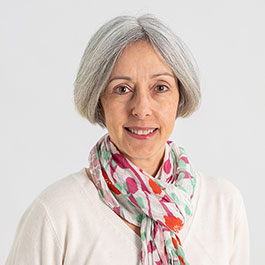Redefining normal: Mental health in the workplace

For most of my life, I’ve lived with a disability, and yet, for most of my life, I couldn’t imagine referring to myself as a disabled person. Even though I often struggled with any number of life tasks, disability was a label for other people. I just experienced ‘difficulties’ that were going to get better as soon as I could figure out the trick of being ‘normal.’
For a long time, I managed to pass as a ‘normal person’. When things did get the better of me, I came up with imaginative excuses to explain the problem away rather than admit to anxiety and depression. Later in life, I developed arthritis, and I had no problem explaining to others what a disabling pain in the everywhere it can be; it was only my mental illness that I felt the need to keep quiet.

I was inadvertently outed about 10 years ago after experiencing a massive panic attack at work. I spent the next few weeks signed-off work and hiding under my duvet. Clearly, I hadn’t figured out that trick of being ‘normal’, but with the help of a wonderful Buddhist psychotherapist, I started to understand my illness. Slowly, I began to understand that trying to find the path to ‘normal’ was as much of a problem as my anxiety and depression. I abandoned the idea that mental illness was some personal tragedy that I must strain to overcome, and this led to a healthier level of self-acceptance.
Working with a disability can pose significant trials, but sometimes the challenges stem more from people’s misperceptions about what it means to live with a disability rather than the disability itself. Individual ignorance or prejudice can intersect with institutional forms of discrimination to make the workplace a socially disabling space.
For several years, there have been reports of an epidemic of mental health illness across the Higher Education sector that affects both staff and students. I believe that my experience of disability has enabled me to better navigate this epidemic in my role as tutor, because it has helped me to develop a good degree of empathy. I’m careful not to cross the boundary between pastoral care and counselling but lending a sympathetic ear shouldn’t be underestimated. I’m adept at recognising and respecting when someone is in a vulnerable place, and I understand the value of reaching out to offer support. I hope that I’ve also become a more empathetic colleague.
Because I no longer hide my disability, I find this helps my students feel more comfortable discussing the challenges they may face in their studies due to disability. Further, it allows me to serve as a positive role model, demonstrating that disability need not be a barrier to success in education or the workplace.
Being an academic in Higher Education today with its high workloads can be particularly hard for those who work with the challenge of a disability. While reasonable adjustments have been vital in enabling me to perform my role on a day-to-day basis, changes in the language surrounding disability in the workplace have also played a role in making me feel more comfortable at work. More opportunities exist now to talk about the challenges of managing work while also frequently managing poor health, and thanks to support networks like the Staff Inclusivity Group, I feel less isolated, more motivated, and more valued at work.
Dr Mary Brewer
Senior Lecturer
Any staff member with a physical or hidden disability is welcome to join the Staff Inclusivity Group, which advocates for equality in the workplace for colleagues with physical or invisible disabilities. The group is also a place to seek support from one another and challenge University policies and practices.
This blog post has been published as part of the University’s Disability History Month campaign, which aims to raise awareness of staff and student experiences as well as share a wide range of supportive resources and initiatives for the University community.
Equity, Diversity and Inclusion
Reflections, comments, discussion and opinion on EDI topics from Loughborough University staff and students